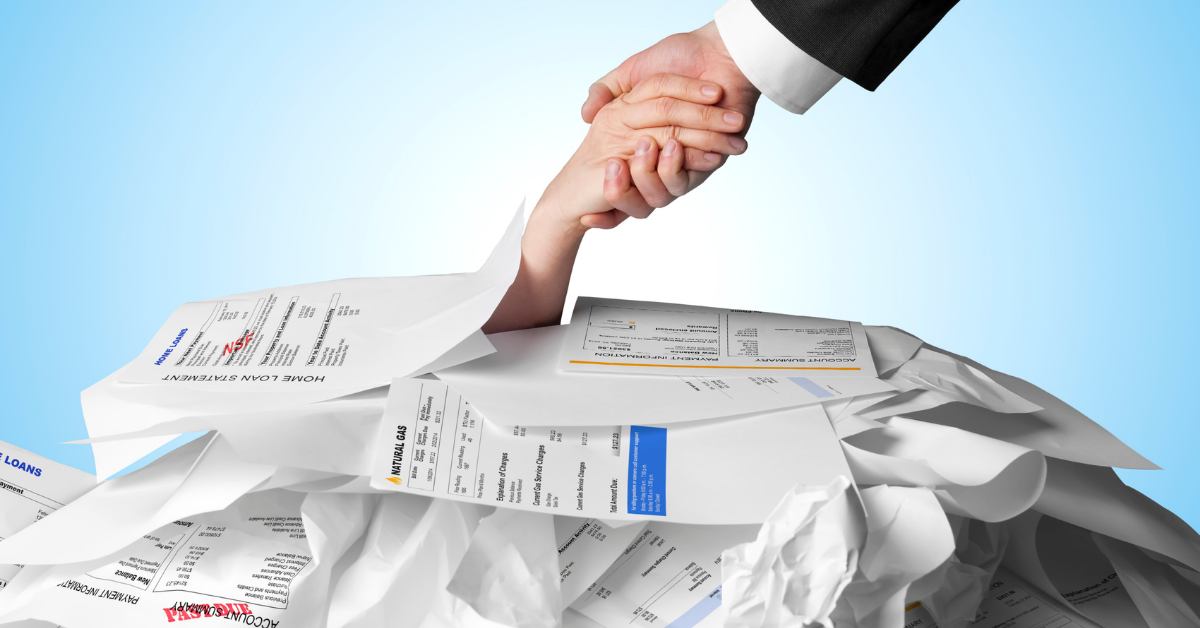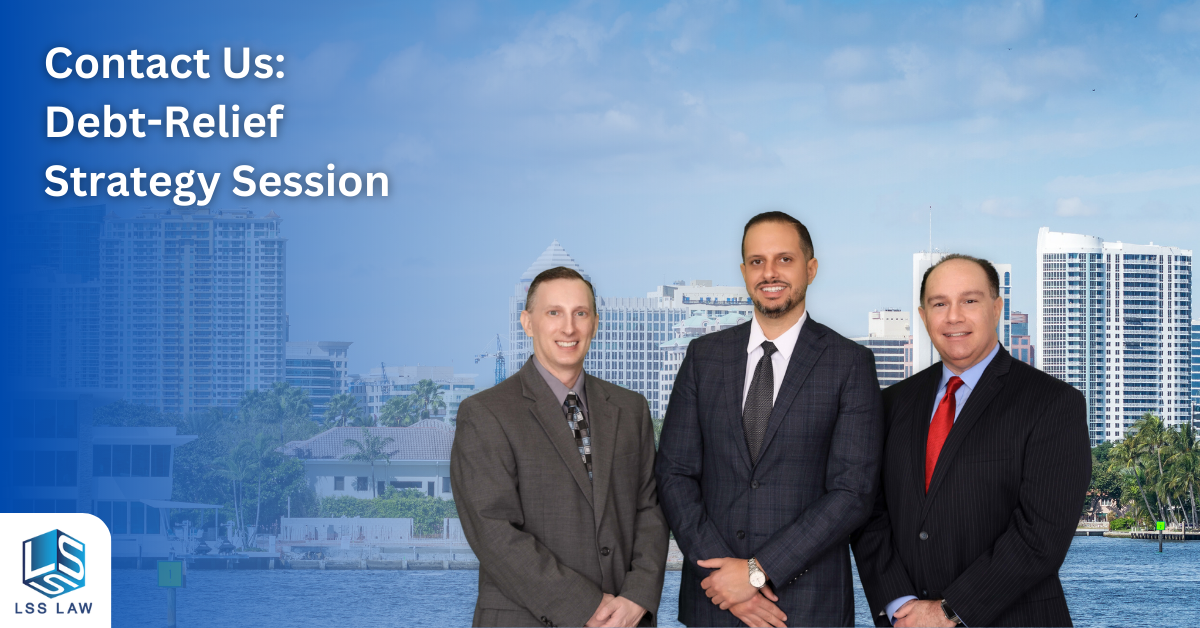Dealing with debt can be overwhelming, stressful, and even confusing. But you don’t have to face it alone. If you’re searching for “debt lawyers near me,” then you’re taking the first step toward finding the expert help you need. In this article, we’ll explore what debt lawyers do, why you might need one, and how to find the best one for your situation.
Searching for “Debt Lawyers Near Me”? You’ve Come to the Right Place

Debt lawyers are legal professionals who specialize in helping individuals and businesses navigate the complex world of debt management, negotiation, and resolution. They offer valuable advice, guidance, and representation to clients who are struggling with debt, and can help you understand your rights and options when it comes to addressing your financial situation.
Expertise in Debt Laws and Legal Action
Debt lawyers have extensive knowledge of debt laws and regulations, which allows them to provide informed counsel to their clients. They can also take legal action on your behalf if necessary, such as filing a lawsuit against a creditor or debt collector who is violating your rights.
Skilled Negotiators and Advocates
Debt attorneys are skilled negotiators. They can work with creditors and debt collectors to reach a settlement or payment plan that works for both parties. They can also represent you in court if your case goes to trial, ensuring that your rights are protected and your voice is heard.
Handling Paperwork and Documentation
Managing debt often involves a significant amount of paperwork and documentation, from drafting demand letters to filing court documents. Debt lawyers can handle this for you, ensuring that all necessary paperwork is accurate and on time.
When to Consider Hiring a Debt Lawyer

While not every debt situation requires the assistance of a lawyer, there are certain circumstances in which it may be beneficial to seek professional help. You might consider hiring a debt lawyer if:
- Your case is expected to go to court and you need representation.
- You need to send demand letters to creditors or debt collectors.
- You owe at least $5,000 in debt.
- You are a business owner with significant debt-related issues.
Keep in mind that debt lawyers typically charge between $150 and $350 per hour, so it’s important to weigh the potential benefits against the cost of hiring a lawyer.
Understanding Chapter 11 Bankruptcy for Businesses

Chapter 11 bankruptcy is a legal process designed for businesses and corporations seeking debt reorganization and continued operations. This type of bankruptcy can be beneficial for both small and large businesses in Florida, as it provides an automatic stay that temporarily halts collection efforts, foreclosures, and lawsuits.
The Reorganization Plan and Court Involvement
During Chapter 11 bankruptcy, the debtor remains in control of their business as a debtor in possession, unless a trustee is appointed. A reorganization plan must be submitted to the court, detailing how the debtor plans to repay creditors over time. Creditors are divided into classes based on debt type and can vote to approve the reorganization plan.
Throughout the process, the debtor must disclose all financial information to the court and creditors. Non-essential assets may be sold to help repay creditors, and contracts and leases can be renegotiated to reduce expenses. If the debtor fails to meet the court’s requirements or the plan is deemed unfeasible, the court may dismiss the case.
Benefits and Challenges of Chapter 11 Bankruptcy
Filing for Chapter 11 bankruptcy can help businesses continue operating while restructuring debts, preserving jobs, and maintaining relationships with creditors and suppliers. The debtor has an exclusive 120-day exclusivity period to propose a reorganization plan, after which creditors may propose their own plans if the debtor’s plan is not feasible.
However, Chapter 11 can be complex, time-consuming, and costly, with significant fees involved. Court approval is required for certain actions during the process, such as selling assets or obtaining new financing. Despite these challenges, successful completion of Chapter 11 bankruptcy can help businesses overcome financial difficulties, improve their reputation, and rebuild credit over time.
Small Businesses and Subchapter V of Chapter 11 Bankruptcy

Small businesses with less than $7.5 million in debt may qualify for a streamlined Subchapter V process under Chapter 11 bankruptcy. This option simplifies the process, reduces costs, and provides additional benefits for small business debtors, such as faster confirmation of the reorganization plan and the possibility of obtaining post-petition financing to continue operations.
Requirements and Benefits of Subchapter V
To qualify for Subchapter V, the debtor must meet certain eligibility requirements, which include being engaged in commercial or business activities and having total debts below the specified threshold. Subchapter V offers several advantages over traditional Chapter 11 bankruptcy, such as:
- A more streamlined process with fewer reporting requirements.
- No creditors’ committee, reducing costs and complexity.
- A shorter exclusivity period for proposing a reorganization plan, allowing for faster resolution.
- Greater flexibility in negotiating with creditors and addressing tax liabilities.
Consultation with a Bankruptcy Attorney

Navigating the complexities of Chapter 11 bankruptcy, including the Subchapter V option for small businesses, can be challenging without expert guidance. Consulting with an experienced bankruptcy attorney, like those at LSS Law, is essential to determine the best course of action for your specific financial situation. With professional help, you can make informed decisions and take advantage of every benefit that Chapter 11 bankruptcy offers.
Personal Bankruptcy: Chapter 7 and Chapter 13

While Chapter 11 bankruptcy is designed for businesses, individuals struggling with debt also have options. Two common types of personal bankruptcy are Chapter 7 and Chapter 13, each with its own set of benefits and requirements.
Chapter 7: Liquidation Bankruptcy
Chapter 7 bankruptcy, also known as liquidation bankruptcy, involves the sale of non-exempt assets to repay creditors. This type of bankruptcy can be beneficial for individuals with limited income and few valuable assets. Some benefits of Chapter 7 bankruptcy include:
- A relatively quick process, often completed within a few months.
- The discharge of most unsecured debts, such as credit card debt and medical bills.
- An automatic stay that temporarily halts collection efforts, foreclosures, and lawsuits.
However, not all individuals qualify for Chapter 7 bankruptcy. Eligibility is determined by a means test, which compares the debtor’s income to the median income for their household size in Florida. Additionally, certain debts, such as student loans and tax obligations, may not be dischargeable.
Chapter 13: Repayment Plan
Chapter 13 bankruptcy, also known as reorganization bankruptcy, allows individuals to create a repayment plan to pay off their debts over a period of three to five years. This type of bankruptcy is suitable for individuals with regular income and valuable assets they wish to protect, such as a home or car. Some benefits of Chapter 13 bankruptcy include:
- The opportunity to catch up on missed mortgage or car loan payments, potentially preventing foreclosure or repossession.
- The ability to repay non-dischargeable debts, such as tax obligations, over time.
- The possibility of cramming down certain secured debts to the current market value of the collateral.
Chapter 13 bankruptcy has specific eligibility requirements, including debt limits and the completion of a credit counseling course.
Preparing for Your Bankruptcy Consultation

To make the most of your bankruptcy consultation with a debt collection attorney, it is essential to come prepared with relevant documents and information. Gather evidence of your income, such as pay stubs or tax returns, as well as a list of your bills and a projection of your household expenses. This information will help your bankruptcy attorney assess your financial situation and recommend the best course of action.
When looking for “debt lawyers near me,” consider a law firm with a team of experienced attorneys who will give you a free consultation. They will help you understand your options, the legal fees involved, and the potential benefits of hiring a debt defense lawyer on a contingency fee basis. Legal representation can make a significant difference in your case, especially when dealing with federal laws, debt collectors, and complex debt collection issues.
Don’t hesitate to contact a debt collection lawyer in South Florida, including Fort Lauderdale and Miami, Florida, to discuss your unique situation and receive the advice and assistance you need. With their combined experience in debt collection defense and bankruptcy, they will help you navigate the entire state of your financial life and provide the legal representation you deserve.
Remember to ask the attorney about their past experience, how many cases they have handled, and their success rate in dealing with debt collection harassment, creditor lawsuits, and other debt-related issues. By choosing the right debt lawyer, you can protect your property, family, and future while achieving the debt relief you need.
Overcoming the Stigma of Bankruptcy

Many people view bankruptcy as a sign of failure or a permanent stain on their financial records. However, bankruptcy is a financial tool designed to help individuals and businesses overcome debt and regain control of their finances. By working with an experienced bankruptcy attorney and following the recommended steps, most people can rebuild their credit and create a brighter financial future. Remember, bankruptcy is not the end of the world – it’s a fresh start.
Bankruptcy and Your Credit Score: Dispelling Myths

A common misconception about bankruptcy is that it will permanently damage your credit score. While it’s true that bankruptcy can have an initial negative impact on your credit, the long-term effects are often more positive than negative. Let’s take a closer look at how bankruptcy affects your credit score and how you can work towards rebuilding it.
The Initial Impact of Bankruptcy on Your Credit Score
When you file for bankruptcy, it will appear on your credit report and may cause a drop in your credit score. The extent of the drop depends on such things as your current credit score and the type of bankruptcy you file. However, it’s important to remember that this initial impact is temporary and can be mitigated by taking the right steps.
Rebuilding Your Credit After Bankruptcy
After filing for bankruptcy, you can start rebuilding your credit by following some key recommendations. These include:
- Paying your bills on time: Consistently making timely payments on your remaining debts and bills will demonstrate your commitment to managing your finances responsibly.
- Establishing new credit: Obtaining a secured credit card or a small installment loan can help you rebuild your credit by demonstrating your ability to manage new lines of credit.
- Monitoring your credit report: Regularly reviewing your credit report for errors and disputing any inaccuracies can help ensure that your credit score accurately reflects your financial situation.
- Maintaining low credit card balances: Keeping your credit card balances low and paying them off in full each month can help improve your credit utilization ratio, a key factor in determining your credit score.
- Creating a budget: Developing a budget and sticking to it can help you manage your finances more effectively and avoid falling back into debt.
By following these recommendations, you can steadily rebuild your credit score over time. In fact, many people find that their credit score improves significantly within a few years of filing for bankruptcy.
Seeking Professional Guidance: The Importance of a Bankruptcy Attorney

Navigating the complexities of bankruptcy law can be challenging, especially when dealing with the emotional burden of financial hardship. A skilled bankruptcy attorney can provide invaluable guidance and support throughout the process, helping you make informed decisions and ensuring that your rights are protected.
Working with a bankruptcy attorney can offer several benefits, such as:
- Personalized advice: An experienced attorney can assess your unique financial situation and recommend the most suitable bankruptcy option for your needs.
- Representation in court: If your case goes to court, a bankruptcy attorney can represent you and advocate on your behalf, ensuring that your interests are protected.
- Assistance with paperwork: Bankruptcy involves a significant amount of paperwork and documentation. An attorney can help you complete and file the necessary forms accurately and on time.
- Negotiation with creditors: A bankruptcy attorney can negotiate with your creditors to potentially reduce the amount you owe or create more favorable repayment terms.
If you’re considering bankruptcy, it’s crucial to seek professional guidance from a qualified bankruptcy attorney. They can help you understand your options and guide you through the process, ultimately helping you achieve a brighter financial future.
Frequently Asked Questions About Debt Lawyers Near Me
What is the typical cost of hiring a debt lawyer?
Debt lawyers typically charge by the case and the price will depend on how experienced the attorneys are, and the details of your individual case. It is best to schedule a consultation with an experienced attorney so they can cover these details with you and provide an accurate quote. Just make sure you stay aware of any “$0 down” bankruptcy scams out there. Falling for any of those could put you in a deeper hole than you were in before, with much more confusion involved.
How do I know if I need a debt lawyer?
Hiring a debt lawyer is recommended if your case is expected to go to court, demand letters need to be sent, you owe at least $15,000, or you are a sizable business. Additionally, if you’re struggling with overwhelming debt and considering bankruptcy, consulting with a debt lawyer can provide valuable guidance and expertise.
What should I bring to my appointment with a debt lawyer?
When meeting with a debt lawyer, it’s important to bring documentation related to your financial situation. This may include evidence of income, tax returns, a list of bills, and a projection of household expenses. Providing this information will help your attorney better understand your situation and advise you on the best course of action.
Can a debt lawyer help me negotiate with creditors?
Yes, debt lawyers have experience in negotiating with creditors and can often secure more favorable repayment terms on your behalf. Their expertise in debt laws and legal action can be a valuable asset in resolving your debt issues.
How can a debt lawyer help me with bankruptcy?
A debt lawyer can guide you through the bankruptcy process, help you determine which type of bankruptcy is best for your situation, and assist in filing the necessary paperwork. They can also represent you in court proceedings and negotiations with creditors, ensuring your rights are protected and advocating for the best possible outcome.
Where can I find the best debt lawyer near me?
Resources such as LegalMatch and the American Bar Association can help you find the best debt lawyers in your area. Additionally, the Consumer Financial Protection Bureau offers legal aid resources for those in need of assistance.
Contact Us to Learn More About Debt Lawyers Near Me

If you’re struggling with debt and considering bankruptcy, don’t face it alone. Our experienced team at LSS Law is here to help you navigate this complex process and find the best solution for your unique situation. To schedule a no-cost Bankruptcy Strategy Session for personal bankruptcies (Chapters 7 and 13), contact us today at 954-466-0541 or visit our contact page to request a consultation. We offer both in-person and Zoom consultations at our Fort Lauderdale and Miami locations. Let us help you remove the financial monkey from your back and open the door to a brighter future.






